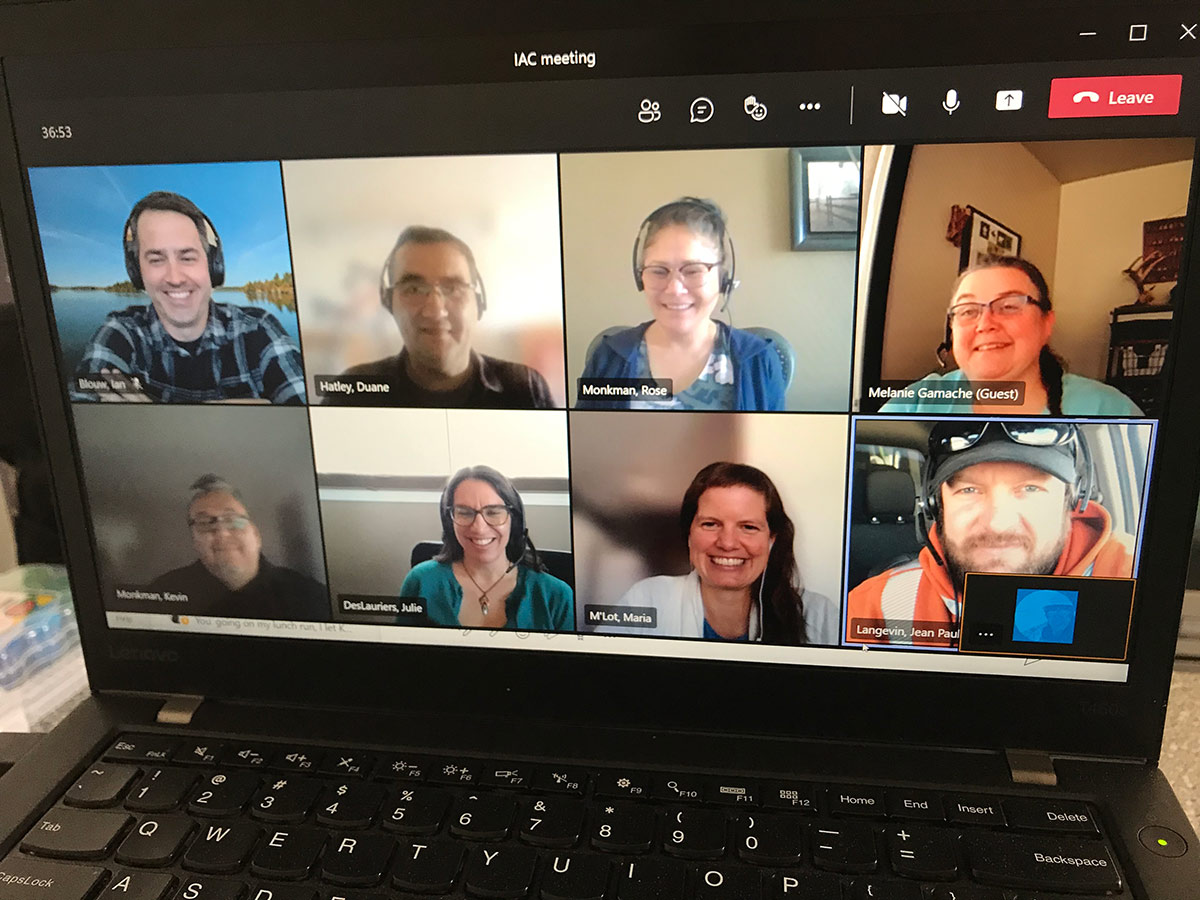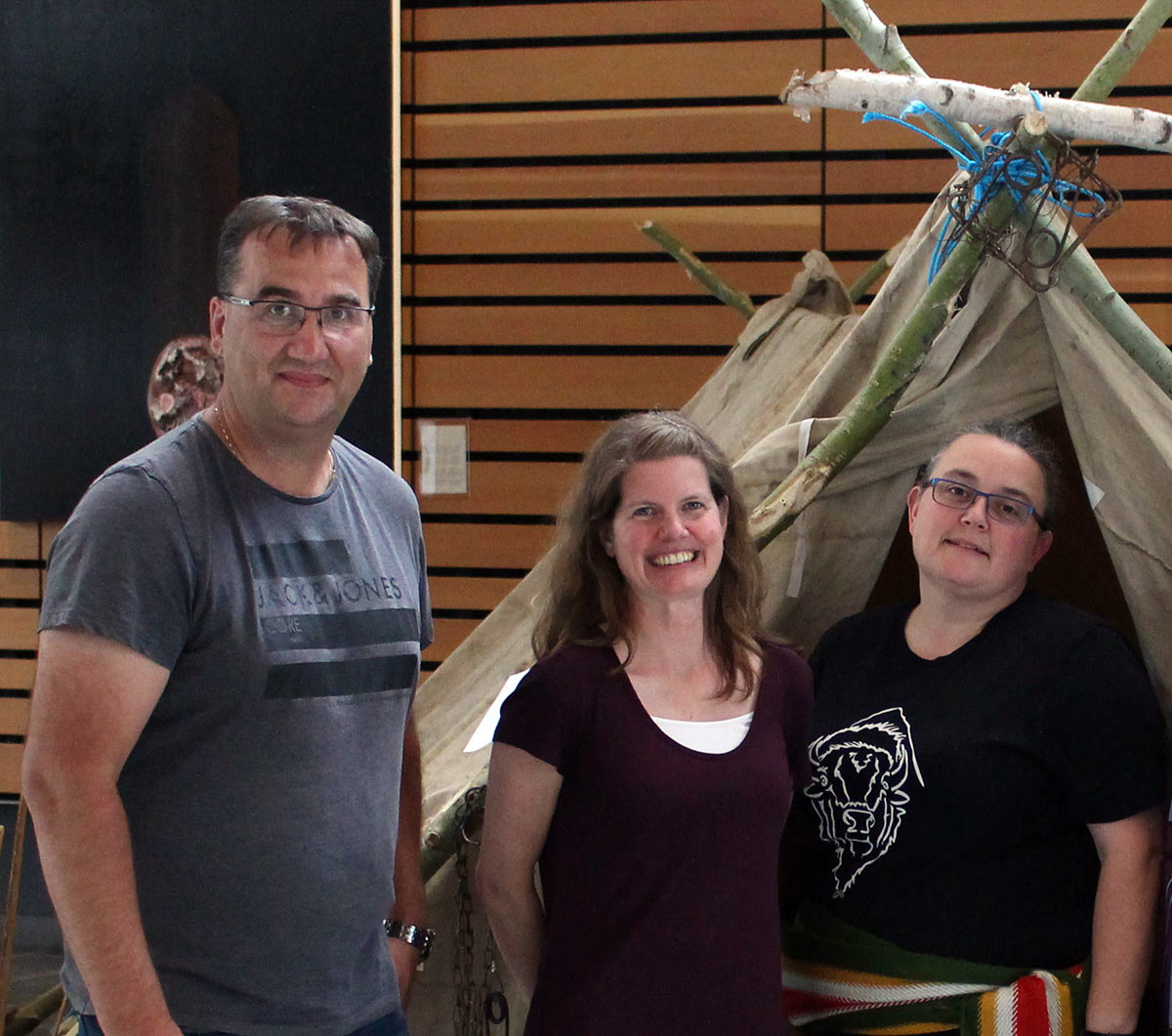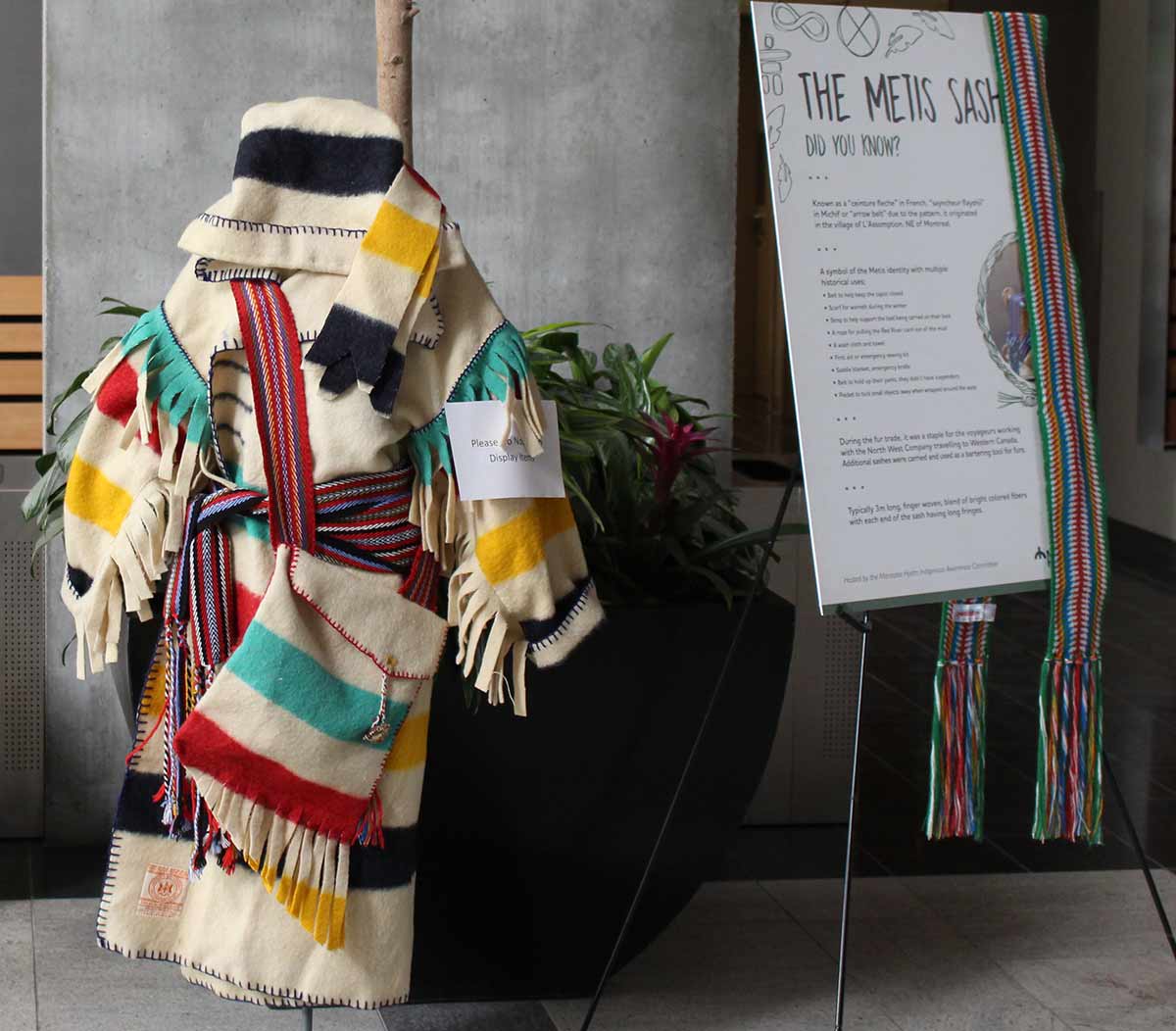Manitoba Hydro’s Indigenous Awareness Circle carries on traditions through storytelling and sharing
“Each of us has a story to tell. Understanding each other’s perspectives and stories is a journey of learning that creates a foundation of respect and appreciation for all cultures. It’s a foundation that we can take to other parts of our lives and our homes and share with others,” – Maria M’Lot, Indigenous Awareness Circle coordinator, Manitoba Hydro Partnerships and Project Support.
Storytelling enables generations of people to pass on and share their traditional knowledge, cultural beliefs, values, history, and ways of life, particularly in the North American Indigenous tradition.
It is through this same mechanism that Manitoba Hydro’s Indigenous Awareness Circle (IAC) continues to share Indigenous history, culture, and current issues within its community. With emphasis on the vital role Indigenous communities and people hold in Manitoba’s past, present and future, Manitoba Hydro focuses on uplifting and empowering Indigenous people and communities wherever it can.
Before COVID-19 turned the world upside down, Manitoba Hydro’s IAC had established an active – and interactive – presence with regular speakers, events and activities for all Manitoba Hydro employees to take part in due to the efforts of the volunteer members from groups across the organization and province.

Manitoba Hydro’s Indigenous Awareness Circle continued their work during the pandemic via online meetings. Top row, left to right: Ian Blouw, Duane Hatley, Rose Monkman, Melanie Gamache. Bottom row, left to right: Kevin Monkman, Julie DesLauriers, Maria M’Lot and Jean Paul Langevin.
“Historically, Indigenous culture has been suppressed or pushed underground – people had to practice their traditions, culture, artwork, ‘under the veil’ so people didn’t see it or receive criticism or shame for practicing it,” said Melanie Gamache, one of the coordinators of the Indigenous Awareness Circle at Manitoba Hydro.
“In June 2019, before COVID, we set up displays in the head office main floor gallery and each of us brought in things to talk about and show, in recognition of National Indigenous Peoples Day,” Gamache said. “We opened the doors to all employees and to the public.
“It was good to have such a vibrant presence in our lobby and to be seen – to be part of everything out in the open. Twenty or 30 years ago, this wouldn’t have happened and that is not so long ago.”
At Manitoba Hydro, IAC members from varied professions and workgroups including accounting, engineering, construction and customer billing work hard to raise awareness and bring forward Indigenous employees to share their stories in our collective history.
“When you are able to make things visible and available, people are able to talk about them and ask questions,” Gamache said. “It helps people to learn and have greater understanding of each other’s story, which can help break the trend of racism.
“Indigenous history is everyone’s history as a Canadian – it is the history of our province, of our country, and of Manitoba Hydro and how we are evolving to work with and within First Nation communities today.”
Manitoba Hydro has a presence across Manitoba and a long history of interaction with many Indigenous peoples, especially those in communities along the river systems affected by hydroelectric development: the Churchill, Laurie, Nelson, Saskatchewan, Rat-Burntwood, and Winnipeg River systems.
“Indigenous people are our colleagues, our customers and our business partners,” says Jeff Betker, Vice-President of External & Indigenous Relations and Communications for Manitoba Hydro. “Indigenous people are the fastest growing demographic in Manitoba and currently make up close to 20 per cent of our workforce. In any employee’s role, they will likely find themselves working with Indigenous people, organizations, and communities.
“Learning about Indigenous peoples and cultures allows us to better understand the customers and communities we serve, and IAC events give us opportunity to learn together, share stories and ask questions in an environment that is safe and welcoming for everyone.”

Duane Hatley, Maria M’Lot and Melanie Gamache, three members of the Indigenous Awareness Circle at Manitoba Hydro. Photo taken June 2019.
For Duane Hatley, who works in Construction for Manitoba Hydro and grew up in Gillam, Manitoba – and whose father spoke fluent Cree and introduced him to traditional activities of hunting and trapping – there is still more he wants to learn.
“Indigenous culture in the north is different from the south[ern parts of Manitoba],” said Hatley. “I’ve appreciated hearing different employees’ experiences in our IAC events.”
Ian Blouw – an employee in Agreements Implementation and Operations Support – agrees.
“Through the Indigenous Speaker Series, we hear from our employees and learn about their perspectives,” Blouw said. “There are many experiences and things that people maybe aren’t really fully aware of and that happened not that long ago – such as the powerful, personal powerful, personal story Brad Bilodeau shared about the Sixties Scoop last December.”
The Sixties Scoop refers to the federally operated program that placed First Nations and Metis children in adoptive homes between 1960 and up until the 1980’s, with the highest numbers of adoptions occurring in the 1960s. In many instances, Indigenous children were “scooped” from their homes and communities without the knowledge of their families and bands.
According to Julie DesLauriers – another Manitoba Hydro employee and member of the IAC who works in Recruitment & Diversity – shared learning through IAC events is also a form of reconciliation. As defined in Canada’s The Path to Reconciliation Act, reconciliation is the ongoing process of establishing and maintaining mutually respectful relationships between Indigenous and non-Indigenous peoples in order to build trust, affirm historical agreements, address healing and create more equitable and inclusive society.
“As a group [the IAC], we experience reconciliation as we learn more about our history and culture and share knowledge. Learning together and having conversations that come out of events is a form of reconciliation,” DesLauriers said.
DesLauriers also continues to learn about her culture in honour of her ancestors.
“My paternal grandmother (deceased) lost her status and identity from her community after marrying someone who was not First Nations. [My family] is exploring how to regain that identity in her honour, and by understanding my history I can help my family find what was lost to us,” she said.
“I honour my culture by educating myself and others. I honour my culture by speaking up to share my story and encourage others to do the same. Our voices and stories deserve to be heard.
“The IAC has given us a platform to learn and share, and for that I am thankful.”

National Indigenous Peoples Day 2019 was recognized with displays in the main floor gallery at Manitoba Hydro Place in Winnipeg, MB.
Groups like the Indigenous Awareness Circle are important to more than just workplaces and energy utilities. They help provide a more accurate representation of Canada’s complex colonial past.
“Colonial history shaped what we learned about Canadian history previously,” said Maria M’Lot, a community relations advisor with Manitoba Hydro and another coordinating member of the IAC. “Our true history as Canadians includes Indigenous peoples. To work effectively today with Indigenous peoples – and all peoples – we need to build knowledge and understanding in culturally diverse environments.
“Our impact on communities and how we operated in the past compared to how we operate today is definitely a positive change. Through our partnerships with communities and how we work, we are opening up peoples’ eyes – in the awareness we raise and by encouraging the same values with contractors on our projects and how we approach our work in consultation with First Nations.”
When it comes to the IAC’s impact within the organization, M’Lot says the group’s work is a symbol of progress.
“Being able to celebrate ourselves, as Indigenous people, within our community and our organization really shows Manitoba Hydro has come a long way,” M’Lot said. “My culture is embedded in me and not something I have to think about before I do – it defines who I am, which is a privilege that is not always been afforded to everyone. Manitoba Hydro is striving to provide an environment where we can celebrate our culture and heritage together.”
